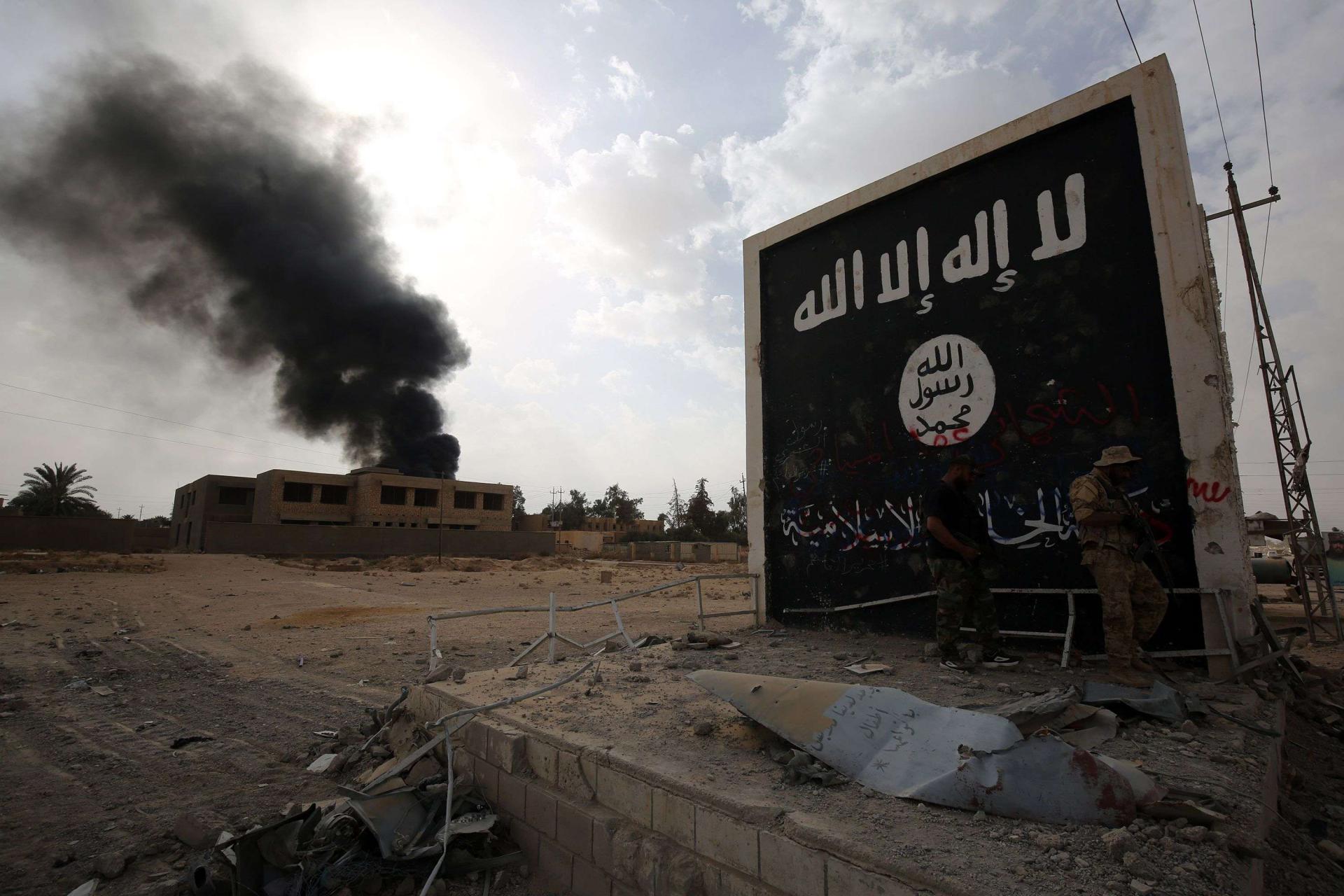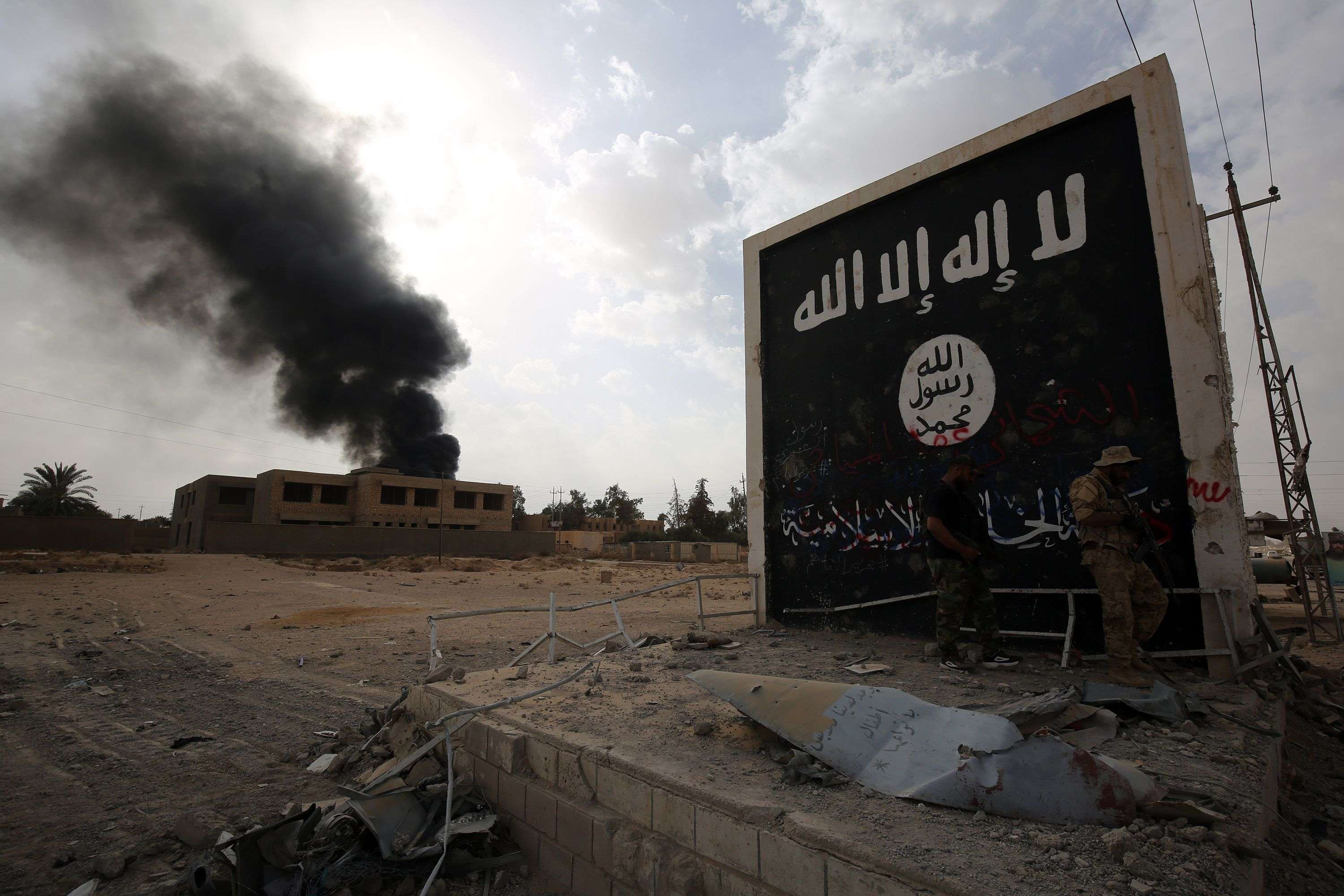Syrian Kurds call for world court on IS crimes
BEIRUT - A world court would offer a much-needed mechanism to address the Islamic State group's horrendous crimes but the path to its creation is fraught with obstacles, experts said.
Syrian Kurds who spearheaded the battle that finished off the IS "caliphate" last week called Monday for an international tribunal to try suspected jihadists.
"The call... is really a call for help by the authorities in northeast Syria," said Nadim Houry, from the New York-based watchdog Human Rights Watch.
"They have been abandoned by the international community to deal with the aftermath of IS."
The Syrian Democratic Forces have waged the US-led coalition's ground battle against IS for years but are getting little help to handle the thousands of suspected jihadists now filling their jails.
They and their relatives hail from more than 50 countries, most of which have refused to take them back.
The jihadists' once sprawling proto-state was off-limits for years and while the scope and brutality of their crimes is beyond doubt, a detailed and verified account of events is lacking.
An international tribunal run by specialised judges would help answer the pressing questions of who, why and how to move towards some form of closure, jurists said.
Joel Hubrecht, from the Paris-based Institute of Advanced Legal Studies, argued that only such a court could match the impact of crimes "that scarred the entire world in its humanity".
The gradual military reconquest of IS territory has so far unearthed mass graves estimated to contain at least 12,000 bodies in Iraq and 5,000 in Syria, according to a UN inquiry.
'Selective justice'?
The group is also accused of mass rape, of perpetrating deadly attacks on several continents and of genocide against the Yazidi minority in northern Iraq.
The global nature of IS's crimes justifies large-scale trials for its bosses, comparable to those organised in Nuremberg for Nazi leaders, Hubrecht said.
"Such a collective endeavour would bring a much more potent justice response than when it is delivered locally," he said.
Harvard academic Andras Riedlmayer also noted that "all of humankind has been deprived of its memory by these wanton attacks on its patrimony".
IS has been accused of destroying countless pre-Islamic artefacts, including in the Syrian UNESCO-listed site of Palmyra and Mosul museum in Iraq.
Riedlmayer agreed that an international tribunal would provide a good alternative to justice systems in Iraq and Syria that lack resources and independence.
The trials that have already taken place for IS crimes in Iraq have been condemned by rights groups as failing to meet international standards.
"In a 15-minute hearing, there is no time for hearing what happened. Victims are not heard," Nadim Houry said.
"They cannot ask questions to IS suspects, they cannot ask 'What happened to our loved ones?'"
But Houry raised the critical issue of "selective justice", arguing that a court would lack in credibility if it was perceived as tackling only certain perpetrators and not others.
The eight-year-old conflict in Syria has left more than 370,000 people dead. Almost a third are civilians and most were not killed by IS.
Huge challenges
HRW has documented deadly rights violations perpetrated by all sides: the regime of President Bashar al-Assad, rebel groups, and the US-led coalition, as well as IS jihadists.
"Are we going to tell the victims we are only going to look at IS perpetrators? When you start distinguishing between victims, you don't help reconciliation, you create a new conflict," Houry said.
The principle of a world court lacks the state support it needs at the moment.
China and Syrian regime ally Russia have repeatedly blocked the International Criminal Court in The Hague from probing the Syrian conflict.
Even the United States, a key ally of Syria's Kurds, on Monday rejected a special court as an immediate option.
If it did receive backing, the practicalities of setting it up in northeastern Syria would bring more almost insurmountable challenges.
The Kurdish authorities there are not internationally recognised.
Ensuring witness protection would be challenging in a war-torn country where the residents of a same town sometimes killed each other.
Clive Stafford-Smith, head of legal aid charity Reprieve, said the international community could however support the Kurds to set up a local court to respect international standards.
But any solution will take time -- to define judicial procedures, and train judges and lawyers.
Even then, who to prosecute will be an issue, and many jihadist leaders are dead or on the run.
Even if a special tribunal was set up, Hubrecht said, "it would take several years" before the first verdicts.


